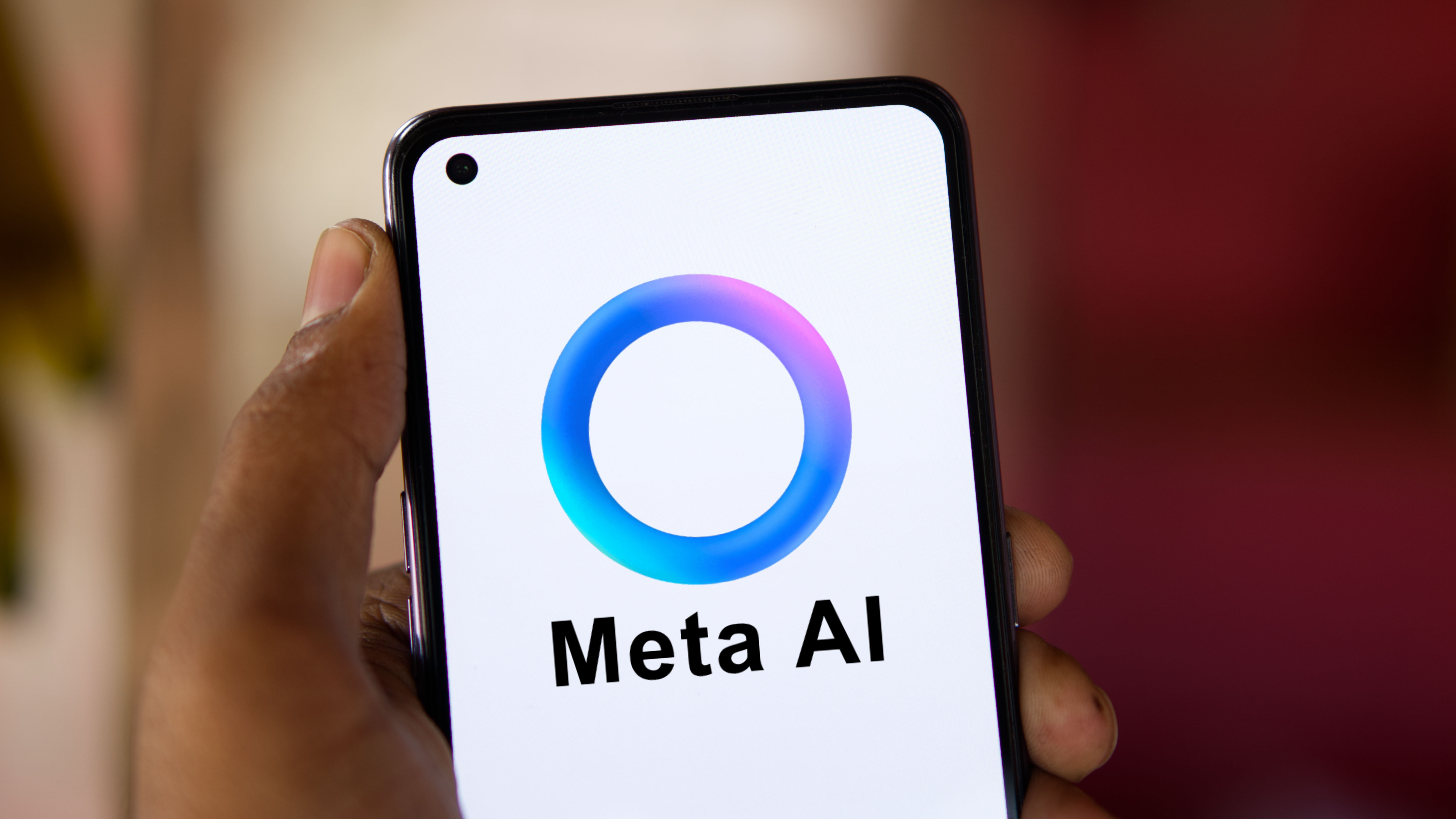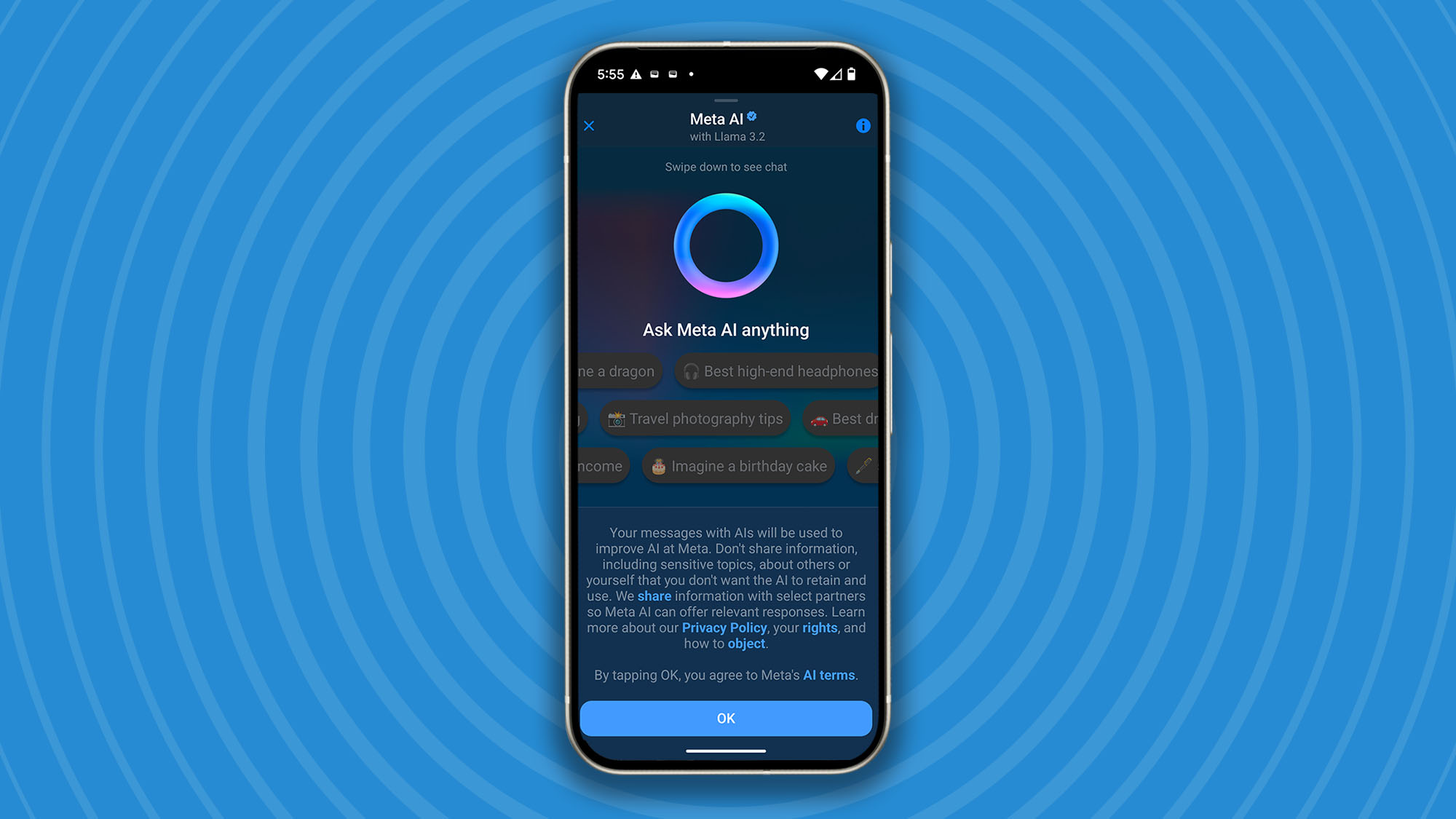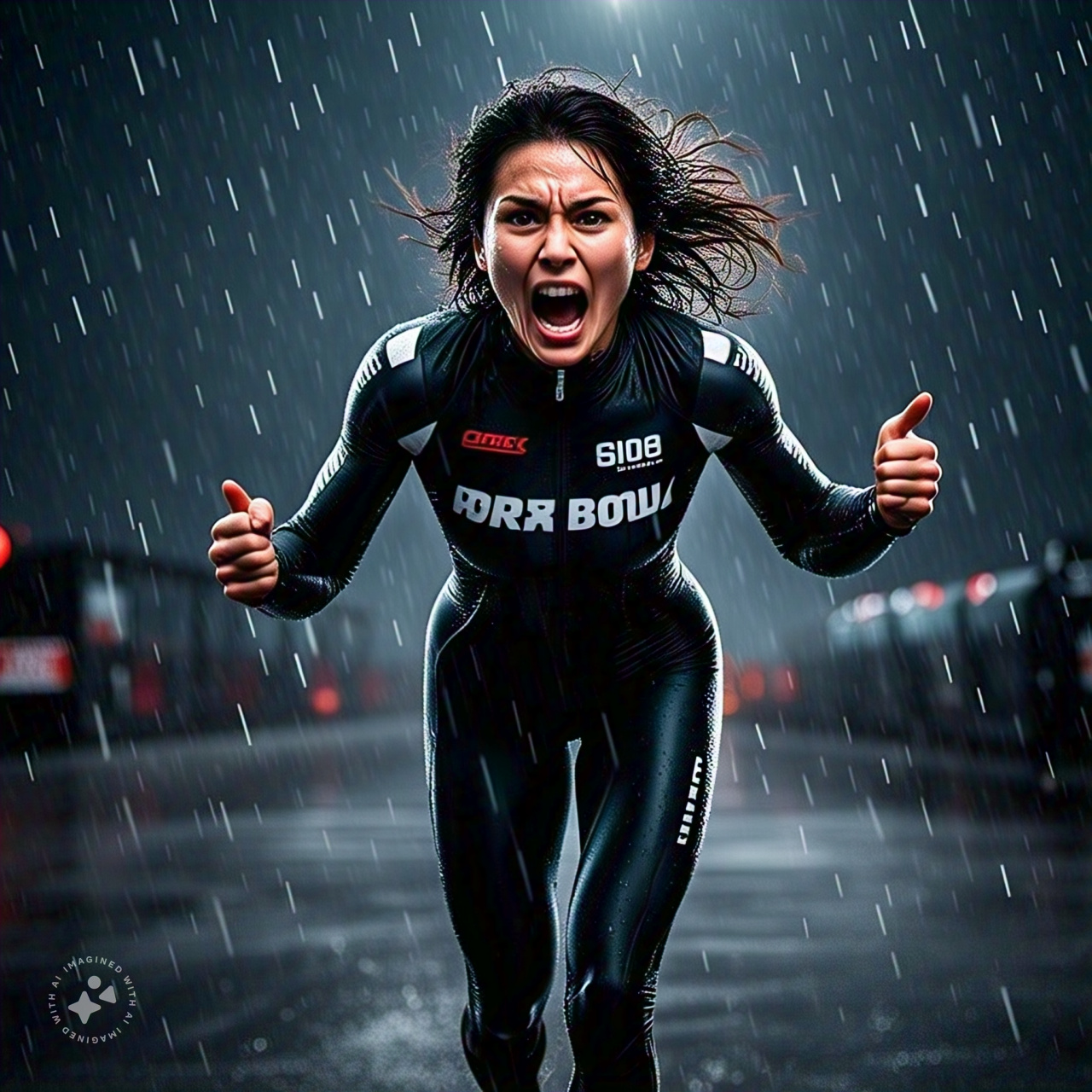One simple prompt can make AI images come alive in Facebook Messenger and Instagram
Is Meta AI the easiest AI image animator to use?

Meta AI has one of the easiest ways of generating AI images I’ve tried, superior even to Gemini’s Imagen 3 and ChatGPT’s DALL-E 3 on their free tiers, because there are very few restrictions on how many images you can create, or what type of images.
On their free tiers, Google’s Gemini image creation won’t let you create images of people at all, and ChatGPT’s DALL-E 3 limits you to just a few images a day. In contrast, Meta AI will let you create images of people without a problem (just not famous people), and I've tried hard to hit a daily limit, but haven’t managed it yet.
Launching Meta AI
You can get to Meta AI in a variety of ways. There's the website meta.ai, which is great if you're on a laptop, but the easiest way is via Meta's suite of social apps – Facebook, Messenger, Instagram, and WhatsApp. Meta AI should be available outside Europe, but the UK launch, for instance, is still rolling out. Meta AI supposedly launched in the UK two weeks ago; however most UK people I’ve talked to say it’s still not available in Meta’s apps yet, but that should change any day now. You'll know when you've got it because you'll see a Meta AI logo in your app's menu bar.
Using AI in an app like Messenger might feel unintuitive at first, but when you think about it, it makes perfect sense, since Meta AI is essentially a chatbot, exactly like ChatGPT is. Messenger is therefore the perfect app in which to use a chatbot, since you use it to chat with people already.

Into the Metaverse
To launch Meta AI all you need to do is tap the icon that’s next to Chats in the bottom menu bar, and you’ll initiate a conversation with the Meta AI chatbot. Just like ChatGPT you can ask it to help you with anything from ideas for Christmas presents for your family to planning a vacation.
You can also invite Meta AI into your group conversations by tapping the @ symbol and then tapping on Meta AI. You can then ask it a question, and everybody in the group chat will see the answer.
One thing Meta AI is very good at is creating images. Just type, “Imagine”, and then type whatever you want to see in the Meta AI chat. As we mentioned there’s no restriction on creating images of people, so prompts like “Imagine an athletic person running in the rain and winning a race” produces an image, like this:
Sign up for breaking news, reviews, opinion, top tech deals, and more.

Sure, it’s got that slightly fake 'AI' look to it, and the paid-for versions of ChatGPT and Gemini produce much more realistic images, but it’s quick and convenient to use on a smartphone. What’s more, you can then go on and refine it, and Meta AI will know what you’re talking about, so just type “not raining”, and you’ll get another image, of the running person, but not in the rain, like this:

As you can see there's less rain. I wouldn't say there was no rain, so results aren't always perfect, but you can take it further. If you then type “animate it” you get a great four-second animated version of the same picture. It's even easier to animate images on the meta.ai website as it gives you a button called 'Animate' to click.

With features like these, Meta AI could soon be my go-to source for creating quick AI images, and animating them – I just didn’t imagine that I’d ever be doing it in the Messenger app!
You might also like...
- I tried the Ray-Ban Meta Smart Glasses' newest AI features, and they're about to become a much better – and cooler-looking – companion
- Meta's AI chief is right to call AI fearmongering 'BS' but not for the reason he thinks
- The Meta Quest 3S is fantastic, but there’s one big reason to choose the Quest 3 instead

Graham is the Senior Editor for AI at TechRadar. With over 25 years of experience in both online and print journalism, Graham has worked for various market-leading tech brands including Computeractive, PC Pro, iMore, MacFormat, Mac|Life, Maximum PC, and more. He specializes in reporting on everything to do with AI and has appeared on BBC TV shows like BBC One Breakfast and on Radio 4 commenting on the latest trends in tech. Graham has an honors degree in Computer Science and spends his spare time podcasting and blogging.